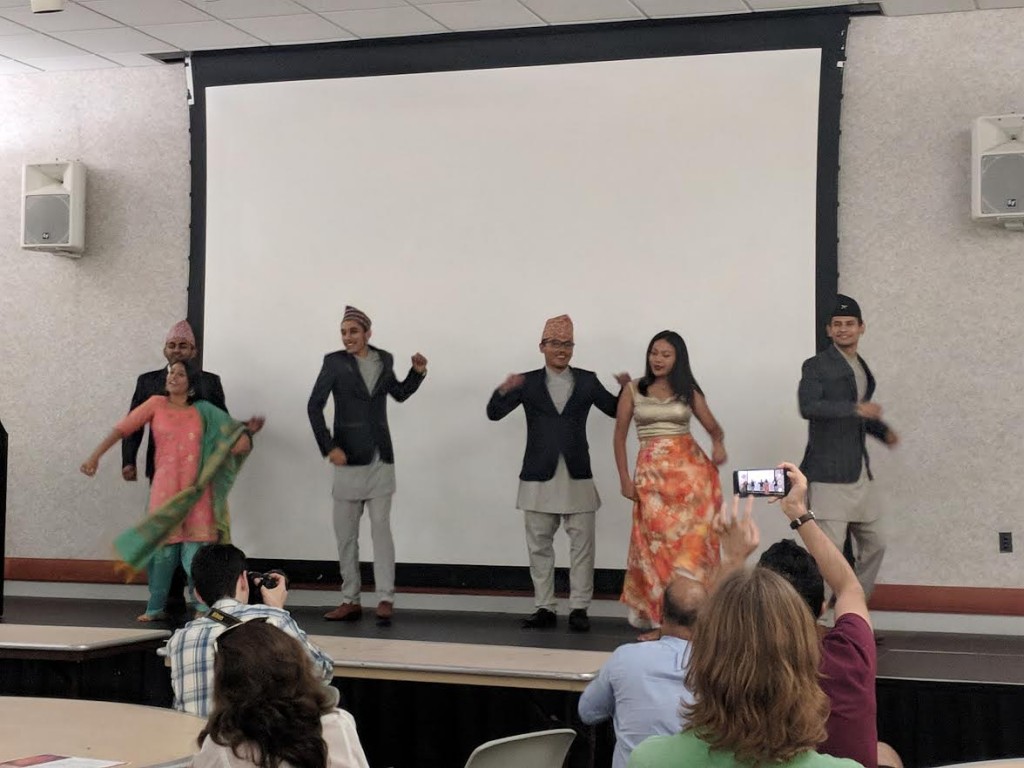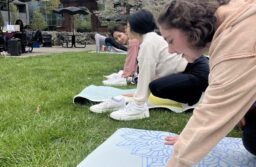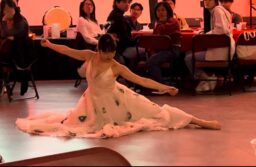
Photo by Scott Yunker
A ceremony marking the beginning of Ramapo’s Year of Asia and the Pacific kicked off in Friends Hall last Friday, as student organizations and faculty members hosted a series of lectures and presentations. The celebration lasted from 3 to 5 p.m.
“The goal of the year is to explore and engage with the many cultures and peoples of the region, and strengthen our community's understanding, knowledge and experience with the region,” said Ben Levy, the director of international education at the Roukema Center.
For both incoming and outgoing study abroad students, this area is highly relevant. “Currently 78 percent of international students are from this region, the number one home country is Nepal, and nearly one-third of all students participating in international programs are doing so in the Asia/Pacific region,” Levy explained.
The event was a relaxed collection of speakers, interactive lessons and display tables of different countries and organizations on campus. To open up the proceedings, professor Dennis Ng spoke about his time in the Peace Corps in the Philippines between 1978 and 1980, which proved to be a truly immersive experience into the culture.
Soon after Professor Ng’s lecture, a group of international students from Nepal demonstrated a variety of dances traditional in their home country.
Sandy Aung, a senior, hosted a table dedicated to her home country of Burma. A variety of everyday Burmese objects were splayed out, with an eager explanation awaiting with each of them.
“I like to surprise people with the fact that we chew green tea,” Aung said in reference to the green tea leaves on display. “If you chew too much before bedtime you’ll be bouncing off the walls.”
Aung wore a longyi, a long-wrapped skirt common in Burma, to the event.
“This is my first time wearing it since I left and came here,” she said.
Senior Thalia Holst, representing the Indian study abroad table, reflected on her experience studying in the region and why the event was so salient to her.
She shared, “When you travel to other countries where the culture is so different from American society and the way you were raised, you have an opportunity to learn about a people that’s so different from you. It really changes the way you look at your own home.”
“Giving students opportunities to travel and see other cities and cultures is the most exciting aspect of this event,” Host said.





